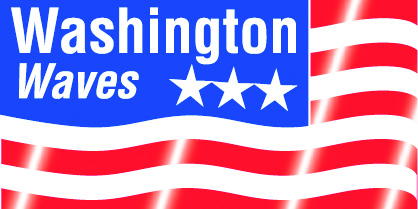Washington, D.C.—The House easily approved a much-anticipated compromise version of the Water Resources Development Act (WRDA) of 2022 as part of a major defense bill.
By a vote of 350 to 80, the 2023 National Defense Authorization Act (NDAA) was sent to the Senate for final congressional approval.
In addition to WRDA, the NDAA also included reauthorization of the Coast Guard and the Maritime Administration.
Rep. Peter DeFazio (D-Ore.), the chairman of the House Transportation and Infrastructure Committee who is ending his lengthy congressional career, spoke on the House floor of WRDA’s significance.
“This bill makes history as the fifth consecutive water resources development bill, the first time in the history of the United States Congress this has been done,” DeFazio said.
He singled out the 25 construction reports to the chief of the U.S. Army Corps of Engineers for projects across the nation and provisions that address climate change.
In an earlier statement, Rep. Sam Graves (R-Mo.), the committee’s ranking member, touted critical language in WRDA that will ensure the Corps maintains its focus on navigation and flood control responsibilities.
The National Waterways Conference (NWC) also welcomed action on WRDA and promoted its 25 projects that have completed technical reviews and are recommended through the Chief’s Report, the six modifications to previously authorized projects and 94 new feasibility studies.
According to the NWC, the bill also expands the scope of feasibility studies by allowing the Corps, at the request of a non-federal interest, to formulate project study alternatives that reduce comprehensive flood risk or hurricane and storm damage risk.
Budget Deadline
With a December 16 deadline on government funding drawing closer, key Republicans and Democrats differ on whether to go for another short-term fix.
Senate Minority Leader Mitch McConnell (R-Ky.) claimed talks have reached a “significant impasse” on an omnibus package to provide funding for the rest of fiscal year 2023.
“We’re running out of time, and we don’t have agreements to do virtually anything, which would only leave us with the option of a short-term CR into early next year,” McConnell said.
“On the omnibus, we don’t even have an overall agreement on how much we are going to spend, and we are running out of time.”
Democratic Caucus Chairman Hakeem Jeffries of New York, who in January will become the top House Democrat, called McConnell’s observation premature.
“There are still several weeks remaining in the calendar year, which is an eternity in Washington, D.C.,” Jeffries said, pointing out the limitations of another stopgap funding measure.
“That would undermine our ability to fully fund our domestic priorities as well as make sure that we have the strongest possible robust defense infrastructure.”
Of course, the power dynamic on Capitol Hill takes a major shift in January when Republicans assume control of the House.
Rail Strike Averted
A nationwide rail shutdown and its catastrophic impact on the economy were averted when President Joe Biden signed into law a measure enforcing an agreement he helped broker months ago.
With a record of strong union support, Biden immediately vowed to continue working on getting paid sick leave, a major sticking point during the dispute, for not only rail employees but all workers.
He received HJR 100 after the Senate voted 80 to 15 to give it final congressional approval. Earlier the House had approved the measure by a vote of 290 to 137.
A separate House-passed measure dealing with sick leave failed in the Senate when it fell short of a required 60-vote super majority.
The agreement enforced by HJR 100 includes a raise and bonus for rail workers.
Tanker Security Program
The Maritime Administration (MarAd) requested comments on an interim final rule on implementing provisions related to the Tanker Security Program (TSP), composed of a fleet of commercially viable and military useful privately owned product tank vessels.
Language in major defense bills in fiscal years 2021 and 2022 authorized the TSP and made minor changes on the participation of long-term charters in the program.
Comments on the interim final, which took effect December 7, must be received by February 6 and may be submitted identified by Docket Number MarAd-2022-0247 via www.regulations.gov, email to Rulemakings.MARAD@dot.gov with “MARAD-2022-0247” in the subject line or mail or courier at Docket Management Facility, U.S. Department of Transportation, 1200 New Jersey Ave. SE, Room W12–140, Washington, D.C. 20590.



